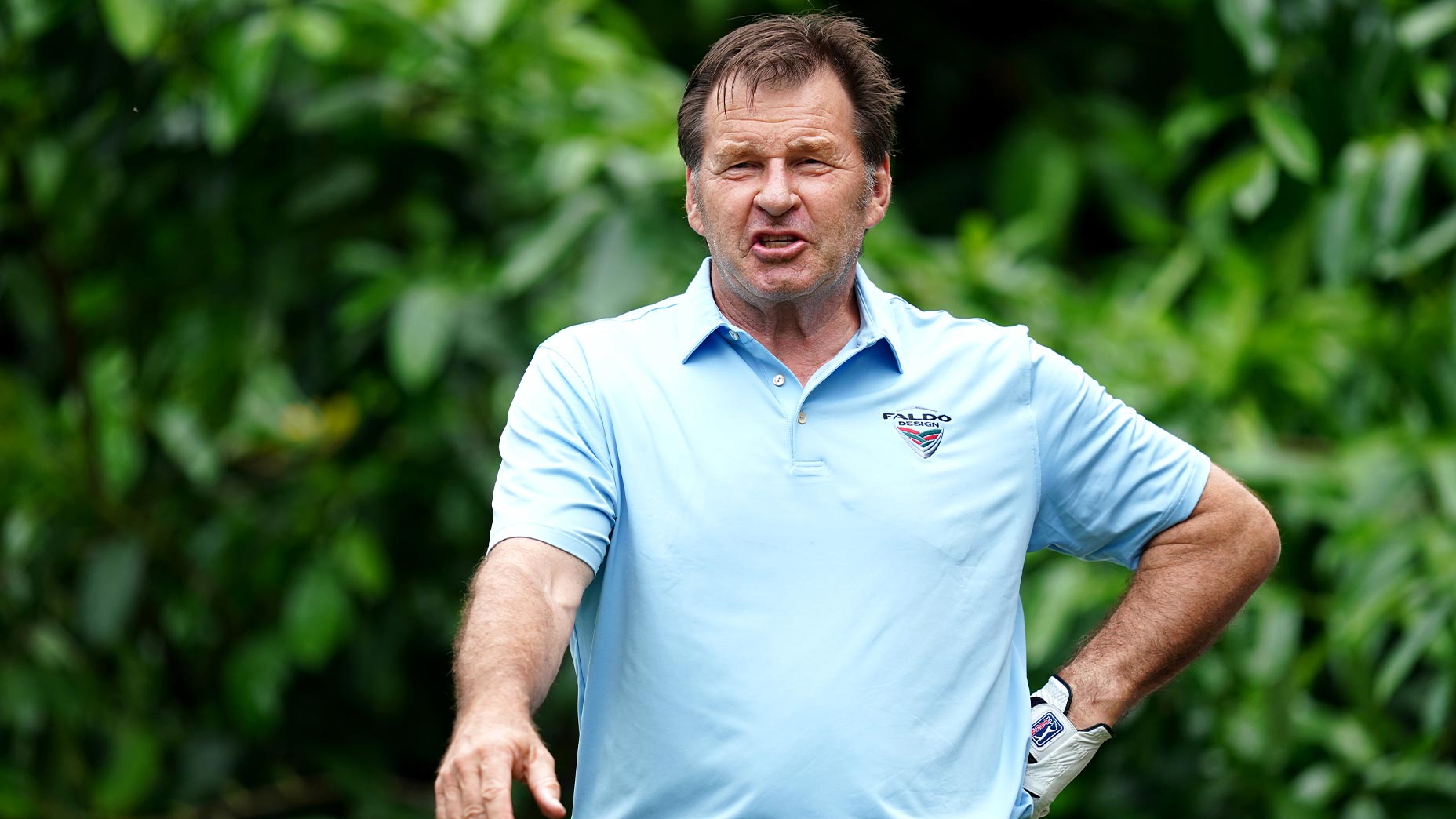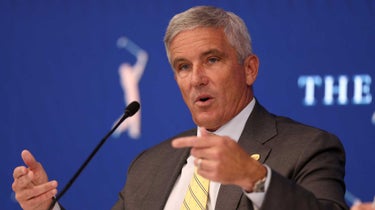
Nick Faldo’s stance on LIV remains unchanged, but his perspective on the Saudi merger qualifies as a surprise.
Getty Images
At this point, Nick Faldo’s opinions on LIV Golf are no secret. So it should come as no surprise that his latest quotes on the upstart league weren’t flattering.
“Nobody’s really interested,” Faldo told ESPN Thursday, this time taking aim at the league’s team format. “They’re not going to get the sponsorship that they want. They call it a team [event] and it’s not because it’s stroke play. You see your mates on the putting green and say, ‘Play well,’ and you see them in the scorer’s tent and say, ‘What did you shoot?’ That’s it. A team is out there helping, shoulder to shoulder. That’s a true team.”
Faldo has been a vocal critic of the Saudi-backed league since its inception. But he’s not necessarily critical of the Saudis investing in an existing league.
In the same interview, Faldo took the surprising step of voicing his support for the proposed merger between the PGA Tour and the Saudi Public Investment Fund — a merger that would place two tours Faldo helped built (the PGA Tour and DP World Tour) in direct cahoots with the same people responsible for LIV in the first place.
“I think when the dust settles, whether it takes six months, a year, whatever,” he said. “My goodness, pro golf is in an overall better position financially than we were back in the day.”
To those who have followed his myriad criticisms of LIV closely, Faldo’s support for Saudi investment in pro golf raises more than a few eyebrows. He was, after all, the same guy who called LIV Golf, “meaningless,” and later instructed those upset with public backlash to LIV to avoid getting “all uppity about it.” Had he forgotten? Were those criticisms meaningless all along?
The reality, it seems, is slightly more complicated.
It’s hard to say where Faldo stands on the morality of Saudi money, but it’s clear he feels strongly about an infusion of cash and global influence into the pro game. In that department, it’s hard to argue with his logic. Faldo’s golf life — first as a player and later as a broadcaster, entrepreneur, course designer and philanthropist — has granted him a one-of-one perspective into the world of professional golf. Safe to say the game hasn’t always had access to billions in new funding from a bottomless sponsor.
“I used to love playing [internationally]. I was one of the few guys who really did generally play a world tour back in the day,” Faldo said. “Seve [Ballesteros] played, Greg [Norman] did. We went everywhere, all four corners of the world. Those tours really missed out. I would love to see everyone given a chance to play and to be seen in those countries.”
While it’s easy to criticize the source of this new financing — criticisms Faldo has made himself, to be clear — it’s worth noting just how much golf’s financial footing has shapeshifted over the years.
Yes, Jay Monahan, Jimmy Dunne and the PGA Tour brass may understand the business rationale behind the merger with greater clarity. And yes, Rory McIlroy, Phil Mickelson and even Tiger Woods may grasp the full context of what it means to be a touring pro under a new agreement like this.
But the best way to understand that would be to have lived through it as both a golfer and a member of the golf business. (That he spent two decades as a professional talker is an added bonus.) In other words, the best way to understand that is to have lived as Nick Faldo.
And how does Faldo feel, given all of that context, about the agreement that promises to entrench the PGA Tour in a business relationship with a nation with an abhorrent human rights record? He feels, in a word, optimistic.
Maybe some of that has to do with the promise (and early evidence) of the PGA Tour taking a new, global focus towards its business. Maybe it has to do with the knowledge of financial security for generations of golfers to come. Or maybe it’s because he knows his old pals in the CBS broadcast booth will once again be showing all of the best golfers in the world each week.
It’s hard to say, but whatever the reason, there’s no doubting Faldo’s perspective on where it all stands — strange as it may sound.
“With the guarantor, whatever you want to call it, pro golf is in a pretty darned good place,” he said.









